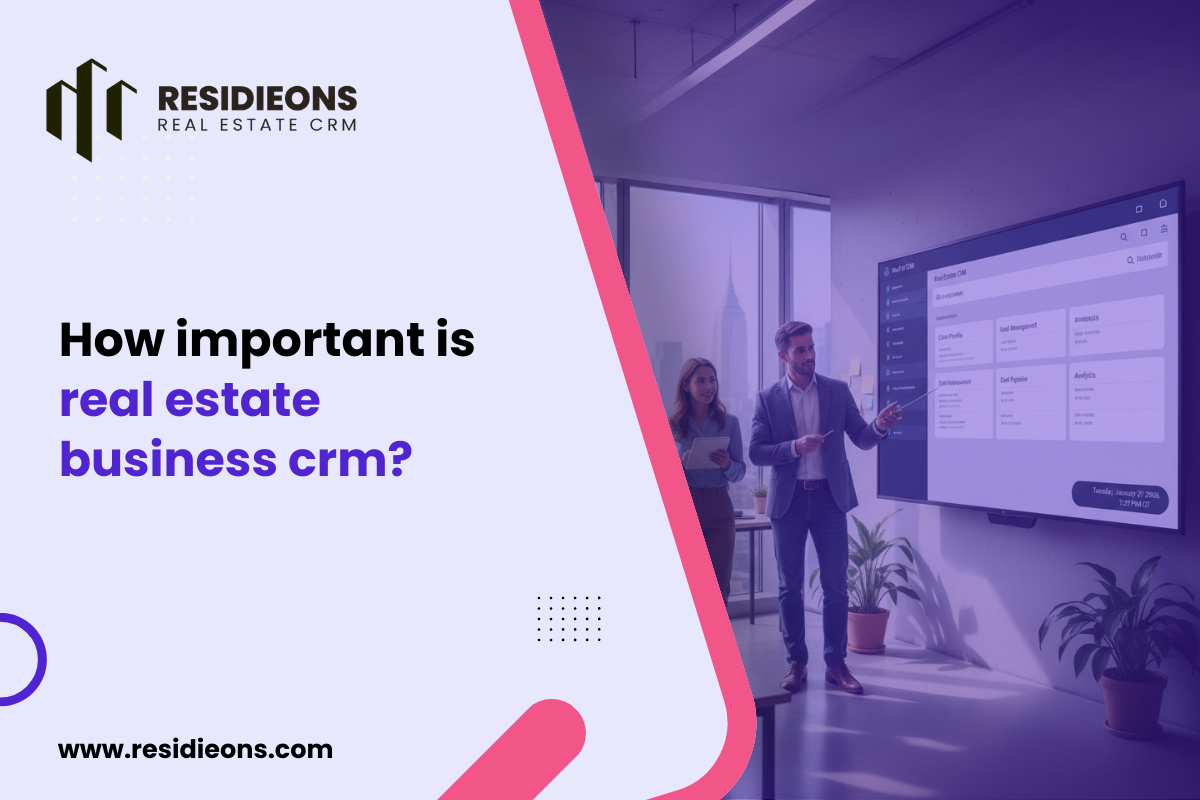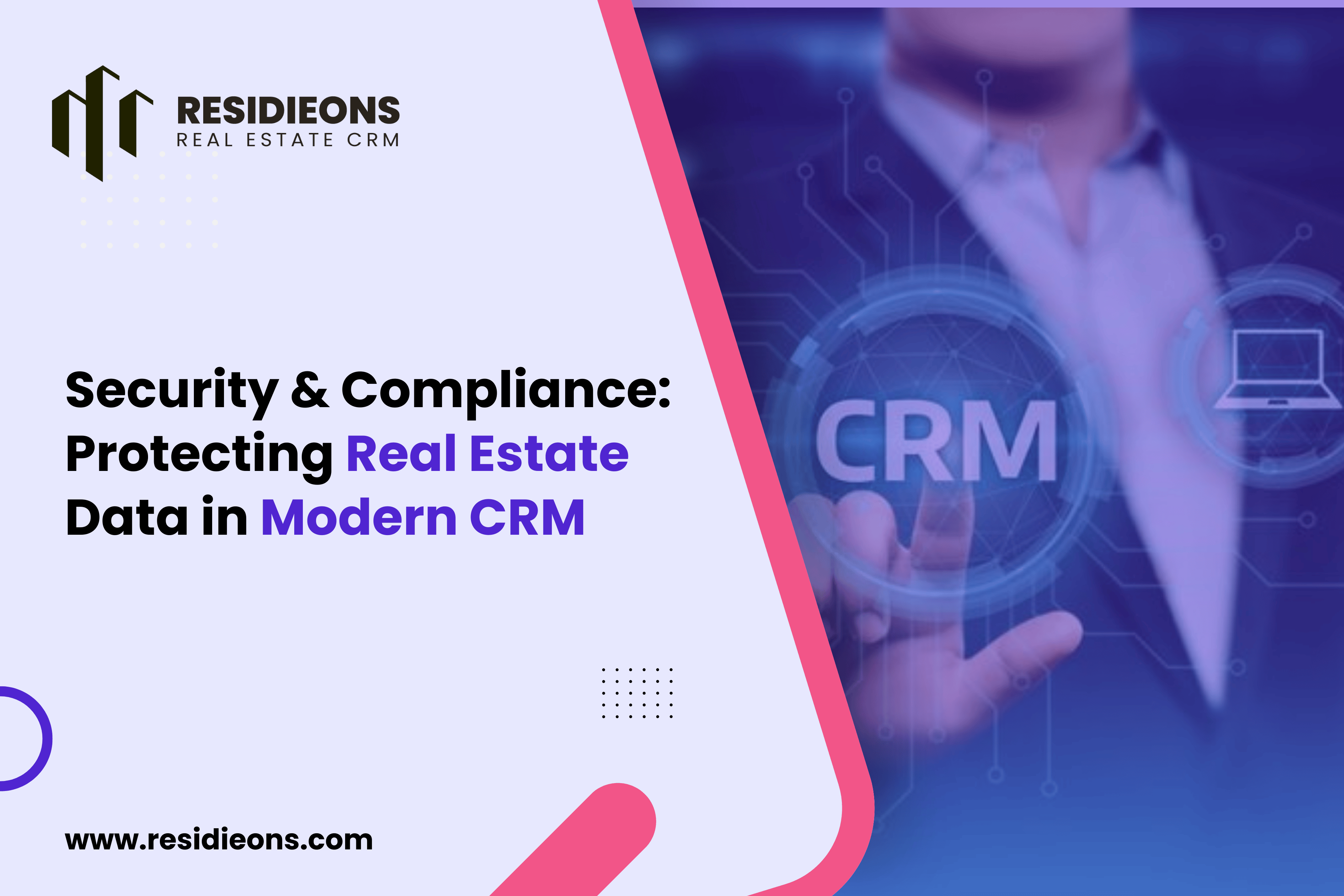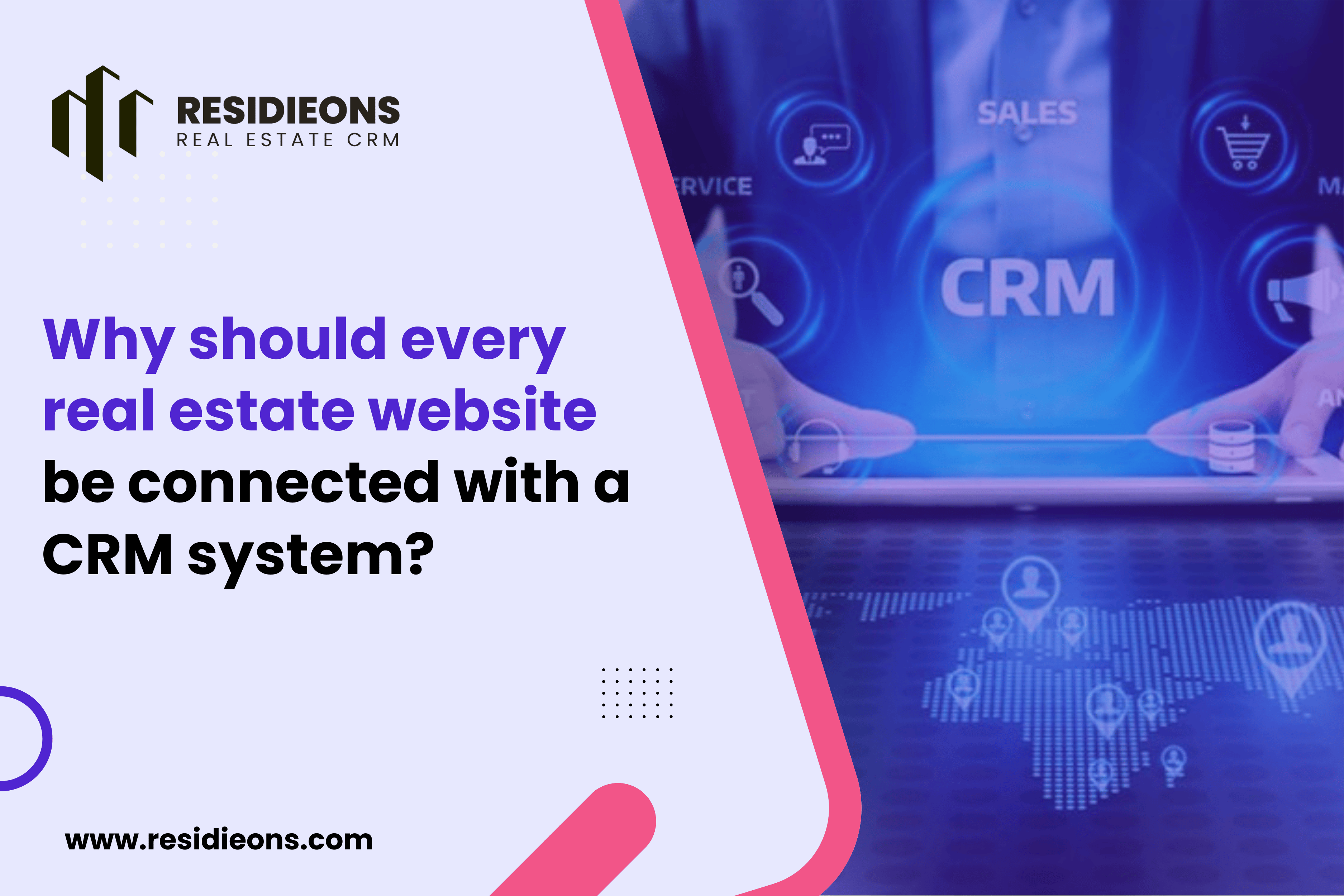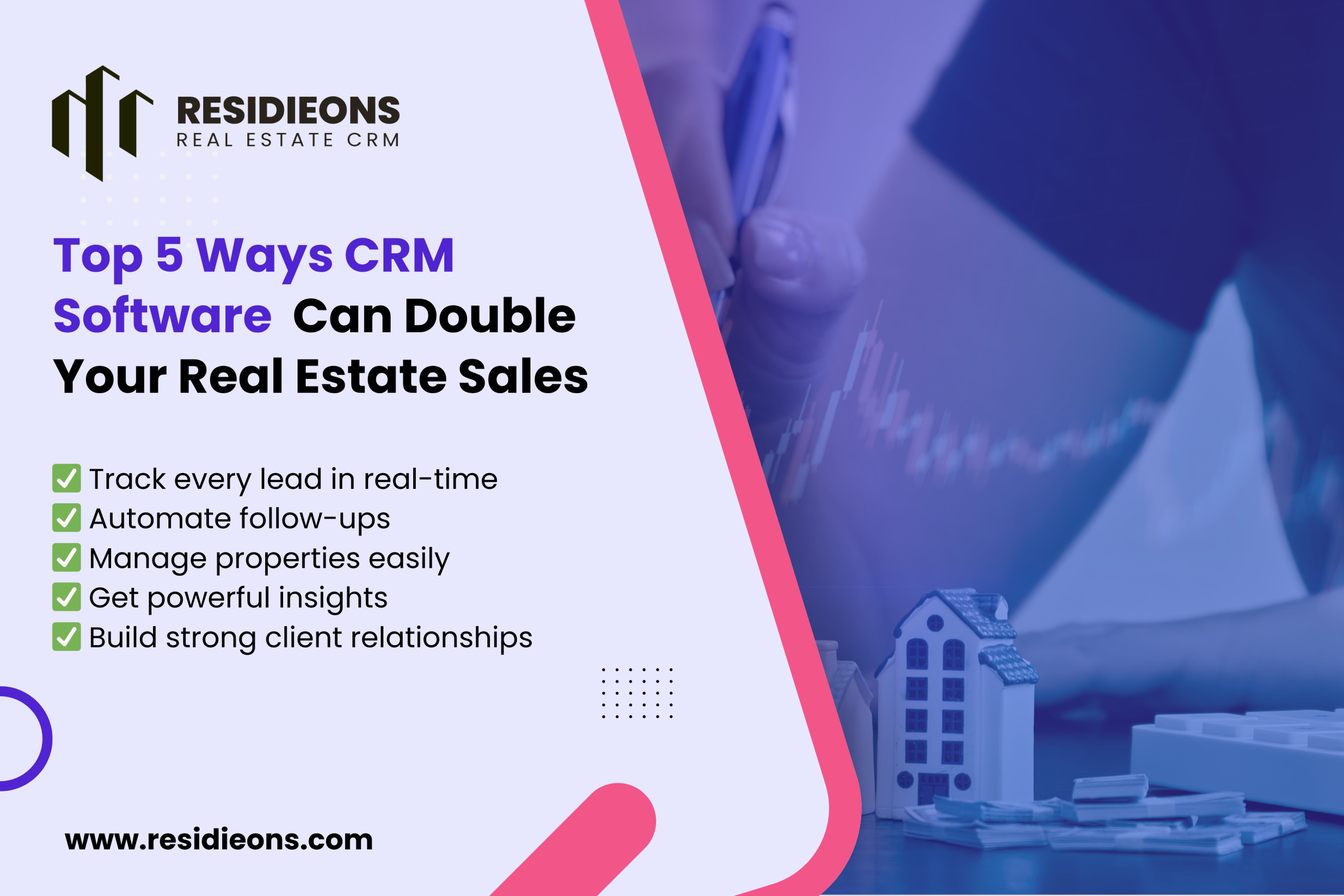
CRM, or customer relationship management, has emerged as a transformative device for numerous industries, and residential property control is no exception. In an era where asset managers are responsible for managing a large number of duties, from tenant acquisition and lease management to renovation and upkeep, implementing CRM systems has been confirmed to be a game-changer. By leveraging advanced technology and information-driven insights, CRM enables property managers to streamline operations, beautify tenant family members, and make informed choices. In this text, we will explore the substantial benefits, demanding situations, and future developments related to CRM in residential belongings management, highlighting how it revolutionizes the way homes are controlled and maintained.
Residential property management can be a complex and stressful venture. From tenant control to belongings lists and leasing, numerous techniques need to be streamlined for easy operations. This is where customer relationship management (CRM) comes into play. CRM isn't just for huge groups; it could significantly gain residential control as well.
In the context of property control, CRM refers to software programs and equipment that help asset managers arrange and streamline their operations. It lets asset managers centralize tenant facts, communicate efficaciously, automate workflows, and more. With CRM, belongings managers can improve their performance and effectiveness in dealing with their residential properties.
CRM in asset management has come a long way. In the past, property managers used manual strategies like spreadsheets, paper statistics, and endless telephone calls to keep track of tenants and properties. However, those techniques had been cumbersome, vulnerable to mistakes, and time-consuming.
Nowadays, CRM solutions have developed to cater especially to the wishes of residential asset control. These modern-day CRM systems provide computerized equipment and features that simplify the entire belongings control method. From tenant onboarding to rent renewals, CRM has revolutionized the way residential homes are controlled.
Gone are the days of sifting through stacks of office work to discover tenant records. With CRM, property managers can store and get access to all tenant information in a centralized database. This permits the quick and smooth retrieval of records, which include hire agreements, touch information, charge records, and maintenance requests. With green tenant management, belongings managers can offer better service and ensure tenant pleasure.
Effective communication is important in asset control. CRM systems provide equipment for seamless verbal exchange between property managers and tenants. It permits sending mass emails or targeted messages, making sure essential announcements or updates reach all tenants. Additionally, CRM fosters collaboration among property control groups, enabling them to work collectively efficaciously in resolving tenant problems or managing preservation requests.
By automating repetitive administrative duties, CRM saves property managers valuable time. Manual processes like hire file creation, lease collection, and protection scheduling can now be streamlined and automated via CRM structures. This now not only frees up time for property managers but additionally reduces the possibilities of mistakes, ultimately leading to value savings.
CRM systems offer automation capabilities that put off the desire for manual access and repetitive obligations. From producing rent files to sending hire reminders, these systems can manage recurring administrative duties, permitting property managers to focus on more important factors of asset management.
With CRM, asset managers can streamline their list and leasing systems. CRM systems enable property managers to create and manipulate property listings, tune inquiries, and schedule viewings all in one location. By centralizing those procedures, asset managers can effectively manipulate vacancies and entice capable tenants.
Gone are the days of looking through filing
shelves for essential documents. CRM structures permit efficient file control
and storage. Property managers can securely save hire agreements, tenant
applications, preservation statistics, and other crucial documents in a
centralized, easily searchable virtual layout. This no longer most effectively
saves bodily areas but additionally guarantees quick access to essential files
on every occasion wished.
CRM structures enable asset managers to provide a customized experience for tenants. Through CRM, belonging managers can make choices, report interactions, and provide custom-designed services to tenants. Whether it's remembering a tenant's desired approach to verbal exchange or their particular maintenance requests, CRM allows for the construction of stronger relationships with tenants.
Good communique is the muse of a sturdy tenant-supervisor courtship. CRM structures facilitate green verbal exchange by providing equipment for sending notifications and updates and resolving troubles in a timely way. With clean and obvious verbal exchange, belonging managers can deal with tenant worries directly and preserve tenant pleasure.
CRM structures allow asset managers to track and control tenant comments and requests correctly. By utilizing CRM, belonging managers can effortlessly log, song, and prioritize tenant requests, ensuring a well-timed decision. The potential to display and cope with tenant comments now not only complements tenant pride but also facilitates asset managers' identification of areas for the development of their belongings management practices.
In conclusion, CRM has transformed
residential asset management by offering efficient tenant management, enhancing
communication and collaboration, streamlining operations, and enhancing tenant
members of the family. By embracing CRM, belonging managers can optimize their
processes, store time, and fees and, in the long run, offer higher offerings to
their tenants. So, why resist the attraction of CRM? It's time to make asset
management a breeze with the power of CRM!
Managing preservation requests can be a real headache for residential property managers. With CRM, however, the procedure will become as easy as silk. Tenants can effortlessly publish upkeep requests via a portal, and the CRM machine will mechanically track and prioritize them. No more lost sticky notes or forgotten emails; it's all smartly organized and on hand at your fingertips.
Prevention is better than a leaky tap. With CRM, you could receive installation reminders for everyday preservation obligations like changing air filters, inspecting hearth alarms, and servicing HVAC systems. By scheduling preventative upkeep, you could preserve your houses in pinnacle shape and keep away from luxurious upkeep down the road.
Coordinating with renovation groups and carriers can now and again be like herding cats. But worry no longer CRM has been given to you again. You can assign duties, set time limits, and speak immediately with your preservation teams and vendors through the CRM platform. It's like having a digital command center to maintain all and sundry on the same web page, ensuring that upkeep and renovation get executed correctly.
Data is the brand-new oil, they are saying. And CRM enables you to strike it rich in the world of property management. By gathering and organizing belongings and tenant records, CRM allows you to gain valuable insights into occupancy prices, apartment profits, tenant preferences, and more. It's like having a crystal ball that predicts market traits and informs your choice-making manner.
Gone are the days of relying on gut feelings or flipping a coin to make crucial belongings management selections. With CRM, you can examine facts and identify tendencies to make informed choices. Need to regulate apartment prices? CRM can show you marketplace tendencies. Wondering which facilities are most sought-after? CRM can monitor tenant alternatives. It's like having a fact-checking scientist on call, minus the lab coat.
Ever desired to be a fortune teller for property performance? Well, CRM won't come up with a crystal ball, but it comes close. By crunching numbers and studying ancient facts, CRM helps you forecast property overall performance and perceive possibilities for optimization. Whether it is lowering vacancies, increasing apartment profits, or enhancing tenant delight, CRM gives you the gear to turn your property management into a profitable adventure.
While CRM can work wonders, integrating it with present asset control systems may be like trying to match a rectangular peg right into a round hollow. It's vital to keep in mind compatibility and ensure an easy integration procedure. Don't fear, even though, with the proper technique and professional help, you may integrate CRM seamlessly into your property control toolbox.
With wonderful statistics comes top-notch responsibility. Protecting tenant and property data is of maximum significance. Be certain to pick a CRM issuer that prioritizes information security and complies with privacy rules. Look for functions like encryption, access controls, and everyday security audits. After all, you don't want your tenant statistics floating across the dark internet like a rogue seashore ball.
Introducing a brand-new gadget can now and again be like herding cats, but it would not have to be a disaster. The key to successful CRM implementation is consumer adoption. Provide thorough training and guidance to your crew so that they include the new system with open fingers. Remember, a nicely-adopted CRM can be the fine sidekick you may ask for in your house control superhero journey.
The internationalization of technology is a wild trip, and CRM is hitching a journey on the fastest curler coaster. From artificial intelligence to Internet of Things gadgets, rising technologies are revolutionizing CRM in residential belongings control. Soon, we will have smart thermostats talking directly to CRM structures and chatbots taking protection requests. The future is shiny, my property control buddies!
Drum roll, please artificial intelligence and automation are taking the middle level in asset management. With AI-powered chatbots and automated workflows, routine tasks can be treated without human intervention, freeing up your time for more vital matters like perfecting your dance moves or binge-watching at your preferred show. The bots are rising, and they're here to make your own home management life less difficult.
In a world where everyone has a telephone glued to their hand, cellular skills are critical. CRM in residential property control is getting a makeover for the mobile age. Tenants can post renovation requests, pay rent, and get admission to important documents from the palm of their hands. It's like having an belongings manager in their pocket 24/7, except without the awkward small talk.
In the end, imposing Residieons CRM in
residential asset management offers several benefits that could revolutionize
the manner in which properties are managed. From streamlining operations and
enhancing tenant relations to enhancing protection and leveraging statistics,
CRM systems provide a comprehensive answer for belongings managers. Although
there can be challenges in the implementation process, the capacity blessings
far outweigh the barriers. As the era continues to adapt, the future of CRM in
residential asset management appears promising, with rising traits, including
AI and mobile capabilities, poised to enhance efficiency and tenant
satisfaction. By embracing CRM, asset managers can elevate their operations and
supply tremendous reports to tenants, ultimately remodeling the residential
asset control panorama.

The real estate market is changing very quickly today, and if you want to s
Read More...


If you are in the real estate business, you already know how tou
Read More...
In today’s competitive real estate market, managing leads, foll
Read More...